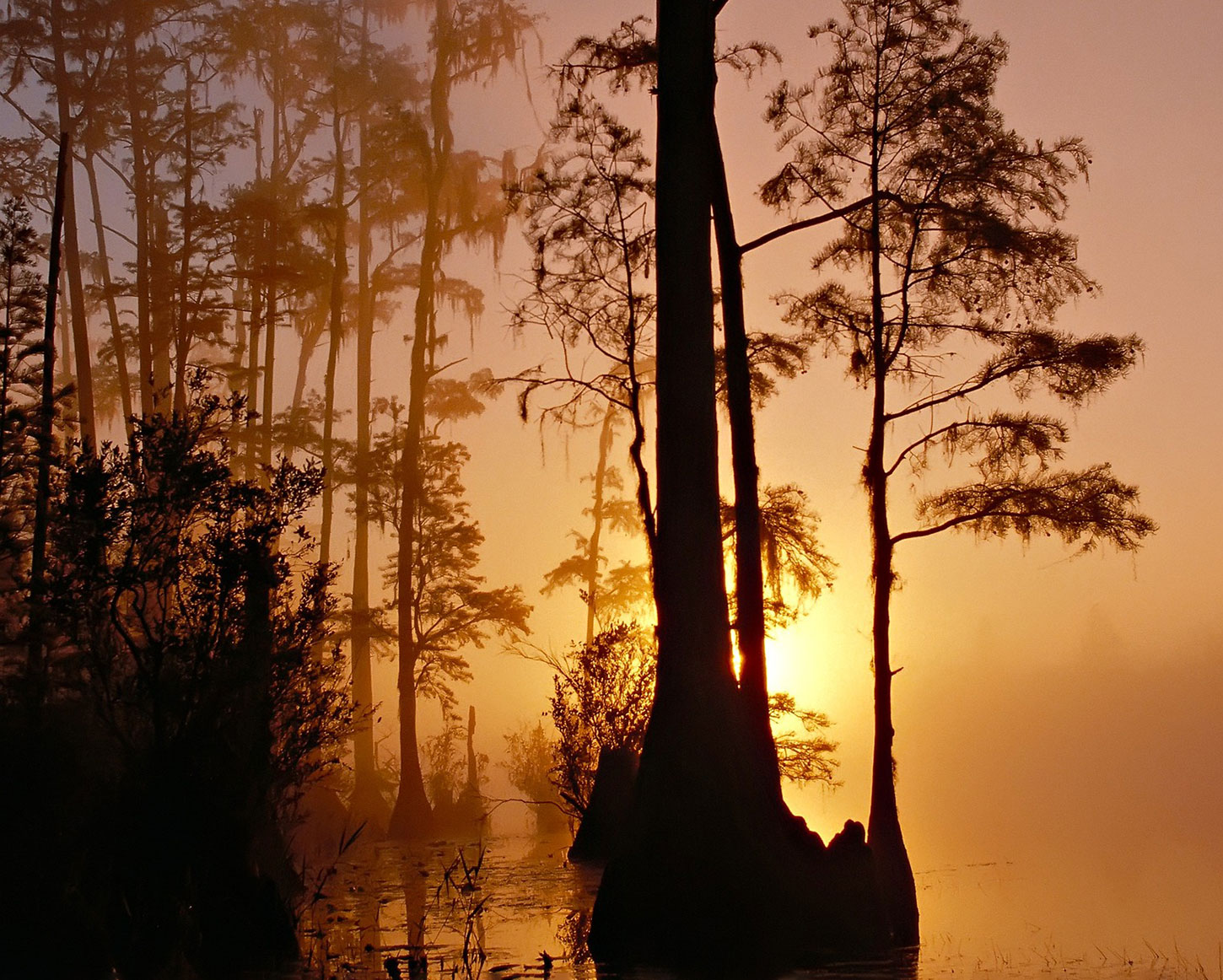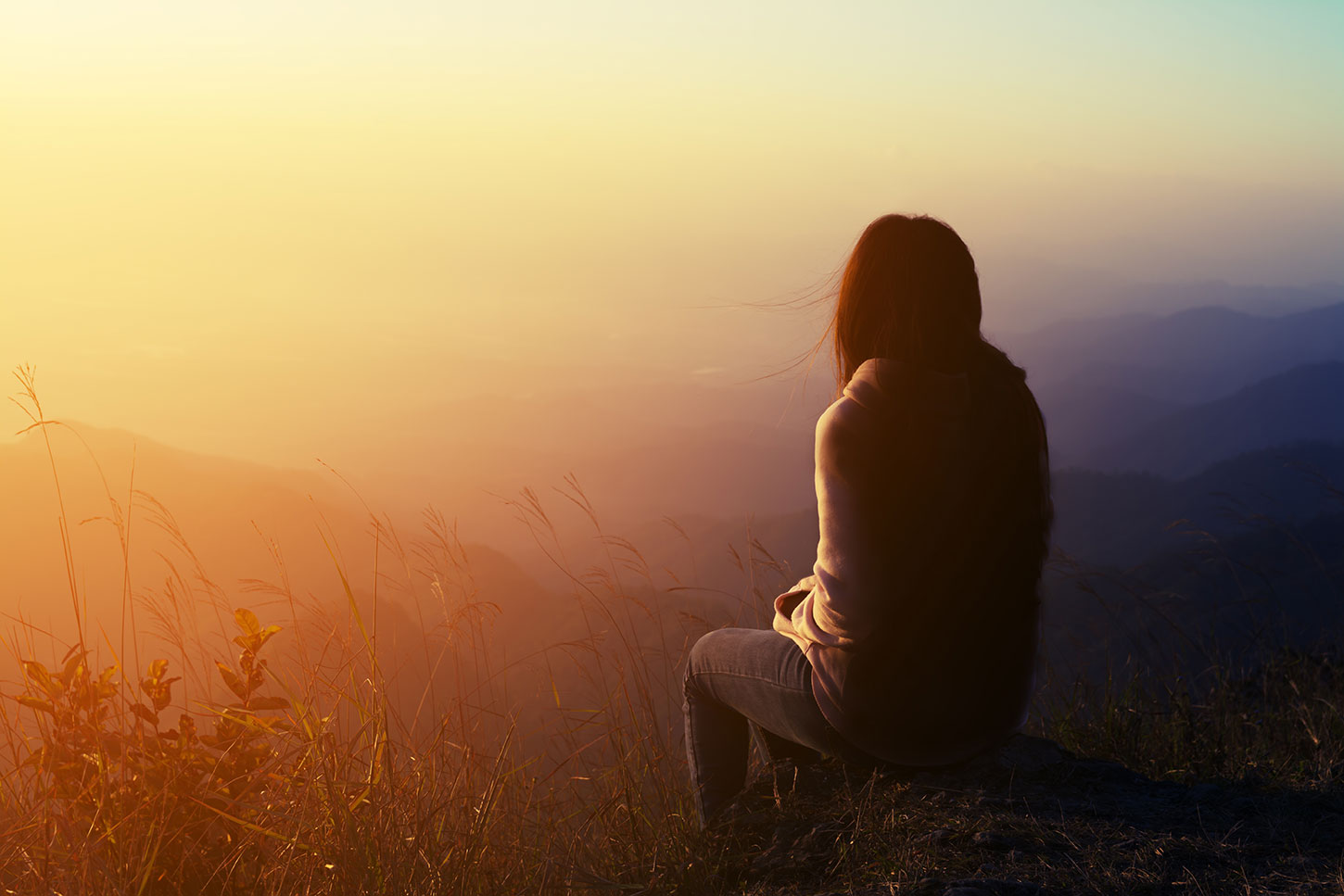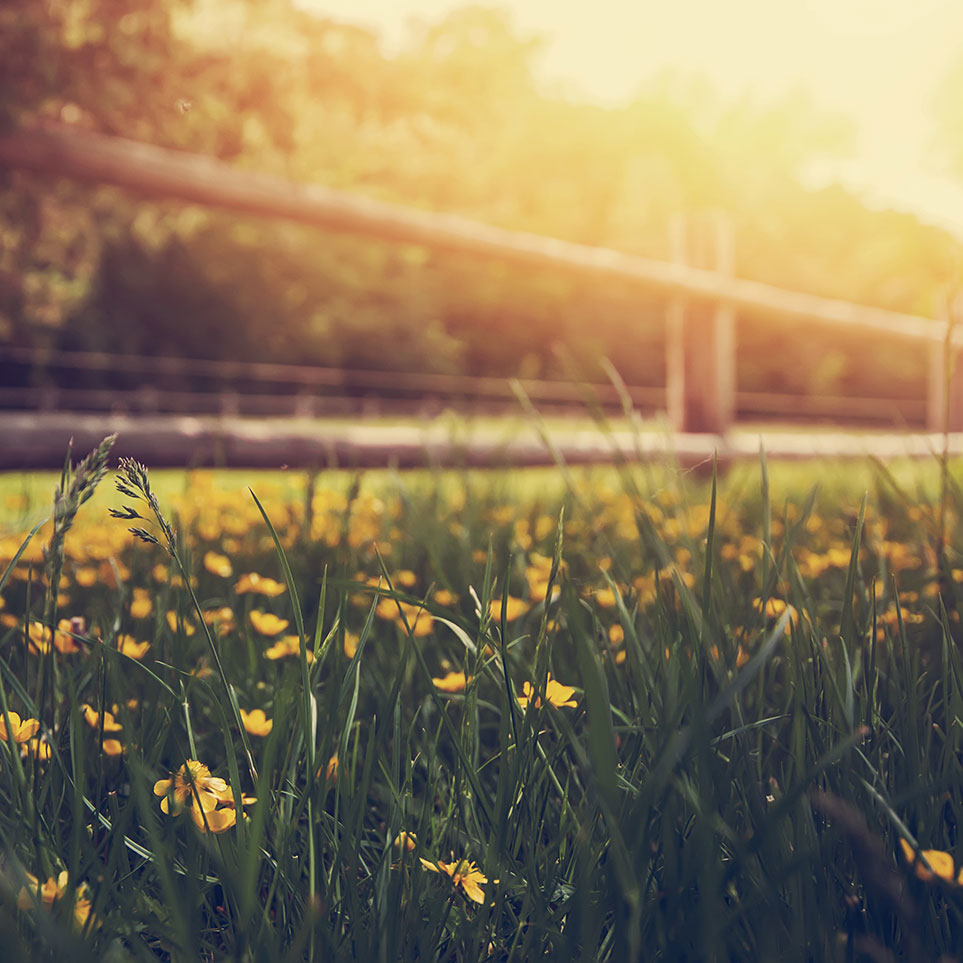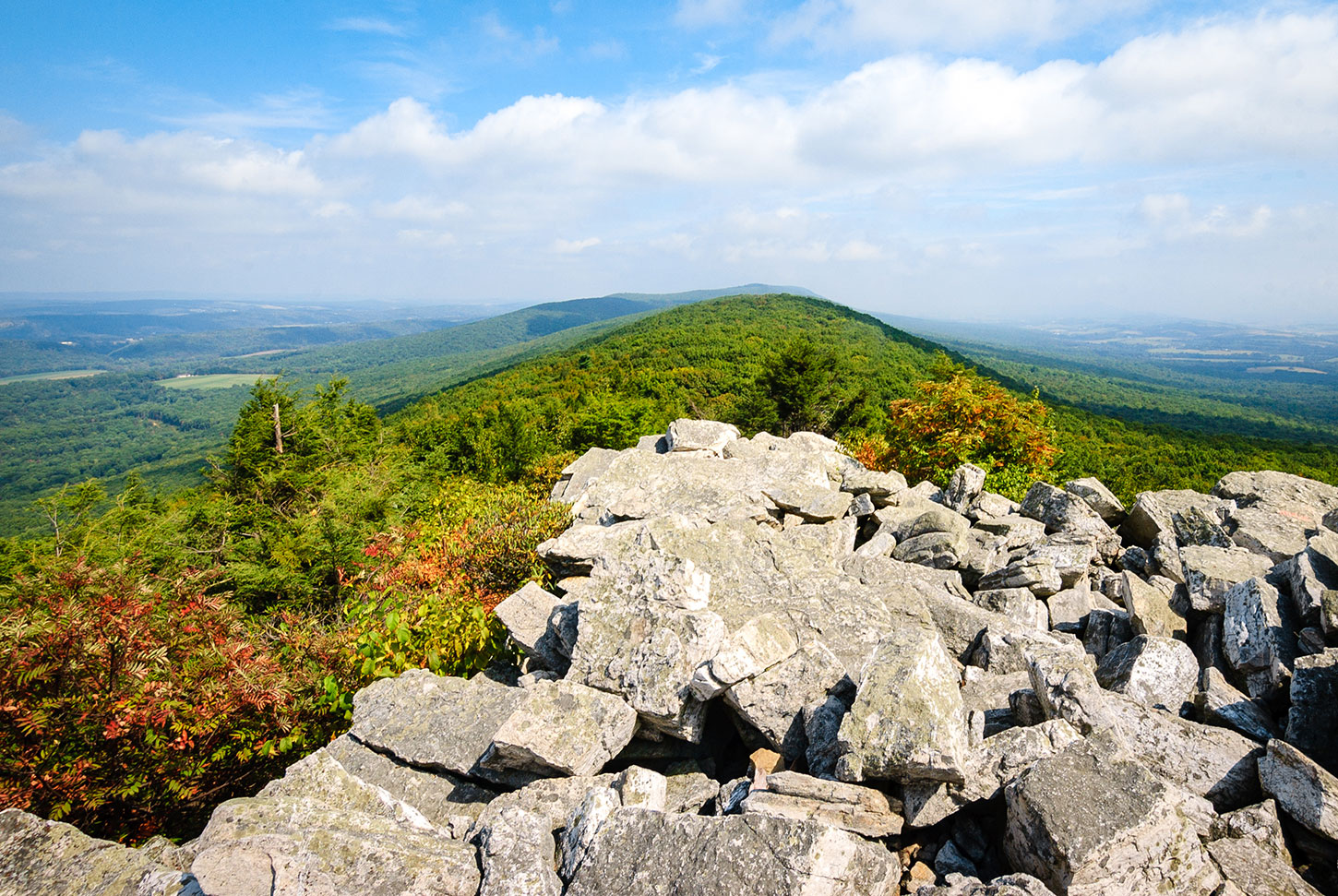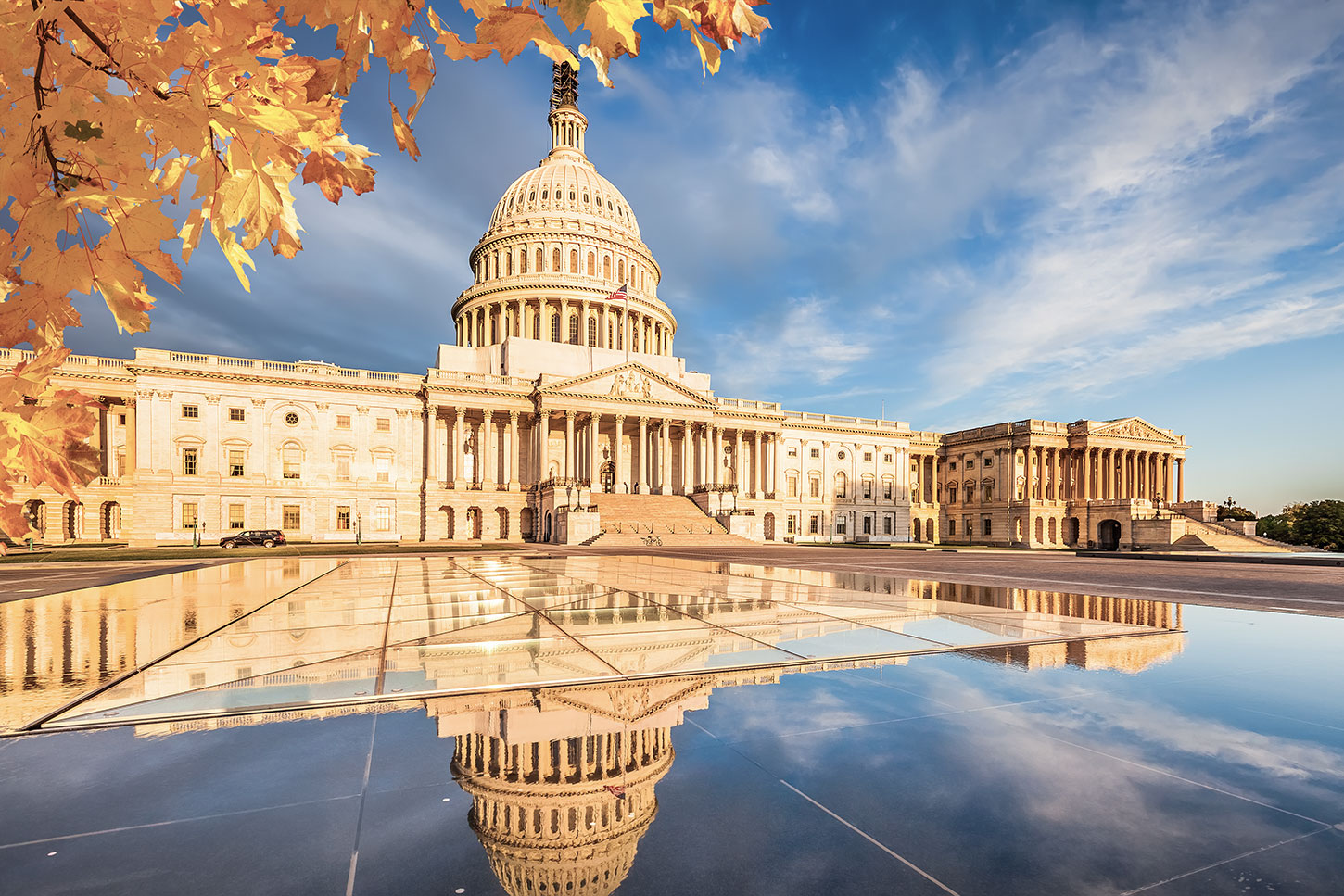Apparently there’s nothing like trying to paddle a gravely ill child out of a swampy wilderness to remind us that death, in fact, is the ultimate wildness. But what does that mean for our lives? This episode of Soundscapes gives voice to Terrain.org contributors Janisse Ray, Robert Morgan, and Kim Parko as we explore the ability of the written word to engage with big questions. Listen to Robert Morgan read his poem "Portal," listen to Janisse Ray read her essay "I Have Seen the Warrior," enjoy a conversation between Miranda Perrone and Janisse Ray, and listen to Kim Park read her poem "Our woman." We hope you enjoy our offerings.
Essays and poems referenced in this episode:
View Full Transcript
Episode Transcript
Speaker 0 00:00:00 Welcome to soundscapes a terrain.org podcast. Today we explore what one of our authors calls the ultimate wilderness, the essential wildness death. What does it mean for our lives and what kind of art is created with mortality and mind? We'll start with a poem by Robert Morgan to ease us in
Speaker 1 00:00:23 Portal that bogs were sacred. Places once may seem surprising to us now who see the mere as something to avoid, a place of stench and rot, a style of muck and queasiness until we recognize that deep morra is open, always open to sky, exposed to stars and rain and lightning's tongue. While soil and woods is hidden and bogs. Have access also to the mysteries of earth's interior, like secret whales of natural gases, terrible dark of subterranean passages. So this un healing wound in land can serve his portal where the air and underworld can mingle, blend as heaven touches hell and thought. Can Mel with the unconscious wheel in this quick soar that's never healed?
Speaker 0 00:01:28 Denise Ray wrote an essay detailing the pull of life and death in the swamps that anchor her own life. I'll let her tell you the rest.
Speaker 2 00:01:38 I have seen the warrior crossing the <unk> by Jenice Ray when crossing the largest swamp east of the Mississippi, a three day journey through 700 square miles of wilderness, full of alligators. The goal is clear. Don't lose anyone. We started out with nine, three women and one man plus five boys, about 14 who acted like boys do goofy anything for a laugh. Teeter tottering between X-men and grown men, our sons and their friends. The boy Zachary was riding in my canoe. He was dark-haired and dark eyed, tall for his age, he was different, more aloof. Sometimes he didn't like the antics of the other boys. He got angry quickly. Zach lived at the very edge of the swamp and had been in many times with his father Jackie, but had never paddled it. I was good friends with his father. Jackie was a wild man. Alligator trapper, bear hunter coyote tracker.
Speaker 2 00:02:57 He was made wilder by a stint in Vietnam where one Easter Sunday going to church, he stepped on a landmine that left enough shrapnel in his body to set off metal detectors. He would've drunk himself to death. He told me, except the swamp saved him. He would go in for two weeks at a time camping on some island or other, watching the cranes and wood ducks following bear trails drinking. He had been in and out of the swamp all his life. It was his place, his salvation, his refuge in time of trouble. So I was surprised at what happened. Years later, I still think of it. I believe death is the ultimate wilderness waiting to be explored. I don't wanna go there yet. As a lover of nature, I wanna get as close as possible to essential wildness without actually dying. So I'm careful to stay on life side of life.
Speaker 2 00:04:06 Skirting the trackless territory of death and mitigating the forces that press us toward it. I had assembled a first aid kit, imagining a possible attacks on the human body. Cuts, scrapes, punctures, splinters, sunburn, wasp stings, sugar digs, flea pricks, snake bites, wildcat ribs, giardia, viruses, bacteria, yeast, constipations, diarrheas, muscle aches, appendicitis, sinusitis, pancreatitis, tonsillitis, heart attacks, liver failures. We might need band-aids and antibiotic cream, rubbing alcohol and aspirin. I put in a tourniquet, although I'd never used one and wouldn't even know how. A stethoscope being analytical and not curative wasn't useful. A defibrillator was too heavy, and to ven was not affordable. I decided against packing the US Army's survival handbook. Zach and I were in the water. First. He was asked, can I have a drink? Zach said a lot was happening and I didn't look back. You can have whatever is in this boat.
Speaker 2 00:05:36 I said, in seconds, Zach gagged and started spitting over the side. I looked back, what's wrong? That drink is ruined. He said, oh my God, Zach, that's not a drink. He seemed confused. What is it? Lamp oil. Did you actually drink it? I took a big swig. He said, did you swallow any? I swallowed some. That's poison. Didn't you see? I wrote poison on the bottle. I drew a skull and crossbones on it. He ducked his head and spat more. All I knew was I was thirsty. We've gotta get you out. The canoe scraped and I stepped into shallow amber colored water. The large container of oil was in my truck. I had grabbed a small Gatorade bottle and parsed a reasonable amount into it. Sure enough, it was poisonous. On the label was a number to call. I had no experience with poisons. Nothing in the first aid kit was going to help.
Speaker 2 00:06:48 I seem to remember charcoal being an antidote and milk, but each poison might be unique and have a singular cure. Why didn't the oil container announce in bold letters? The curative? I borrowed a cell phone and called Zach's dad. He thought Zach would be all right probably. He didn't drink enough to hurt him. He thought if you called the hotline, you'd be waiting a long time and you knew what they'd say. I'm worried about you going. I said to Zach, how do you feel? I feel fine. He seemed okay. If something happens, we can't get back easily. I said, maybe you should stay. I spent most of it out. He said, I don't feel anything. Everybody was waiting. Well, let's give it a shot. I spoke to my own son then making sure he was ready and had everything he needed. My son was Silas, tall and slim, black headed, a fun-loving kid who all his life would value friends as his most cherished possessions. He wasn't jealous of Zach riding in my canoe. He had his own kayak and often paddled with me. He had rather be with his buddies in their kayaks than with his mom. Zach didn't have a mom in his life. He was in the right place. We left King Fisher Landing headed toward Carter Prairie.
Speaker 2 00:08:27 Oki Swamp is a large bog, a depression, a peat maker, a mosaic of Pete batteries, a saucer, not a cup. There's very little solid high ground only floating sod. The sphagnum that defines the bog is so thick that it appears weightbearing, but when you step onto it, you sink floundering in the detritus of centuries of vegetation or you stand trembling. The Oki is called Land of the Trembling Earth for a reason. So a prairie in the swamp is not what you would think. It's a wet flat area filled with aquatic wildflowers. It was a gorgeous sunny day. Carter Prairie was popping with water. Lily spatter dock sticking up. Its yellow bonnets swamp, iris of the color. Purple golden club like birthday candles and shallower places. Carnivorous plants were going crazy. Yellow bladder wart, purple bladder wart, and both the hooded pitcher plant and the golden trumpet blooming their flappy flowers.
Speaker 2 00:09:48 Hat pins were everywhere, like a tiny marshmallows on sticks or white balloons on strings or like little flags on delicate poles. All the metaphors I can think of for hat pins are happy. The first night we'd stay at the shelter at mall hammock, 12 miles. In the second night, we'd stay at big water. By the time we emerged at Billy's Lake on the Western Edge, we had have traveled 31 miles. When most of us think of wilderness, we think of Alaska or the West. But there's wild wilderness even in places like Southern Georgia that have been inhabited for long centuries and degraded in the process. For me, not enough wilderness is left, and every day I resent this. It's a crying shame that humans have trampled so much of this world with such abandoned. Every guidebook we had read said The 12 miles to ma hammock were hard miles.
Speaker 2 00:10:59 Why became quickly clear in a flat. There's no current. Only sheer muscular force will propel a boat. Sometimes we had to get out and drag our boats through the dinner plate. Leaves of water, lily and spatter, dock tangles of flowers. Beautiful but exhausting. Zach maintained his share of paddling. I kept asking him how he was doing, and he kept saying he was good. He seemed good. Maybe he got the poison out still. I was angry at him for not paying attention and angry at myself for not ripping off the Gatorade label and for not hiding the bottle where a kid couldn't find it. I encouraged him occasionally to eat crackers. I thought they would settle his stomach and absorb lamp oil residue. The water was Micah colored lava like obsidian glass, reflecting white puffy clouds in a blue sky. The trail flicked with foam ary warblers called dragon flies, some golden reddish and some powder blue zipped along startled king fishers careered raucously away.
Speaker 2 00:12:13 We passed mile marker one and two and three. Once we stopped to knock our boats into a knot and pass around energy bars at four, where a dark water pool was ringed with trees. We tied up to the wooden marker and ate lunch. Can we swim? One of the boys asked, not a good idea, said one of the adults, the gators had pressed wide highways through the pee battery around us. The boys found a log up slanted out of the water. One by one, they crawled onto it. Careful to stay balanced. I was responsible for one other kid, max, one of Silas's school friends. He loved to test limits in the most endearing ways. He spent a lot of time at my house and I knew what to expect from him. Of course, it was Max who slipped and fell in. He surfaced brown eyes large, above the water, thrashing.
Speaker 2 00:13:11 I he shrieked. Get me outta here. Here I admit to laughing. Max turned back to the tree and tried to pull himself up. He slipped again and disappeared underwater. He surfaced, I'm gonna die. He said. Even he didn't believe it. You're not. I said, get to the edge. Zach was still in my canoe. That was the kind of kid he was. He watched from a safe distance. I'd begged his dad, Jackie to let me bring Zach. Jackie was the wildest looking, wildest acting man I'd ever seen. He had long, yellow, white hair that he kept pulled back. He was sinewy and muscular, although he never saw the inside of a gym. He had a raw, visceral animal power, electricity, dwk running through him. Any watch he wore stopped running. Jackie's hunt club buddies were always hanging around his place, usually swinging on a bottle of whiskey.
Speaker 2 00:14:11 Jackie also grew roses and strung up millions of holiday lights every year and baked cinnamon buns. But still imagine being a kid with no mom raised by a man like him. One person never could be two parents, and as a single mother myself, I knew Jackie would welcome a break. It'd be good for Zach to go camping with us as soon as we ate. Zack's problem started. He clambered out of the boat and rushed onto a floating island. When he got back, he was pale. He sat down on the thwart his head hanging. Zach, ma'am, are you okay? My stomach hurts and my head hurts. I keep burping up that stuff. It tastes nasty. I'm feeling sick. Was that diarrhea? Yes, ma'am. He was such a damned polite kid. I don't like it that you're starting to get sick now. I said, I glanced at the marker.
Speaker 2 00:15:09 I think I'll be okay. Almost as soon as he said it, he tipped the boat sideways and enriched into the black water. Oh my God. I said, I'm okay. He said, at least you're getting it out of your system. The boys climbed into their boats and we set off. Zack curled up in the canoe. The hot sun was beating down. I dipped my bandana over the side and spread it across his forehead. Then covered his arms so he wouldn't get burned. I offered him water. I paddled The bottle had clearly said poison. It said upon ingestion to call the National Poison Hotline Poison kills. As dangerous as it was to continue, I hated Zach missing the trip. I kept thinking maybe at mile five I knew I'd made the wrong decision. The adults huddled. We decided to switch boats so I could take a kayak, which would move faster.
Speaker 2 00:16:08 I'd pull Zach in a second kayak. My gear would get divided. I'd go back. They'd go on. I'd catch up. The other adults would take care of Silas and Max. Silas. I'll be back. It may be after dark. You're not going to worry, are you? I'm not worried. He said many times I had paddled for the both of us, dragging him and his boat until he was old enough to paddle long distances himself. Well, please don't worry. I'll be okay, but this is going to take hours. You know that. It's okay. He said. I have never seen my kid intentionally hurt anyone or anything. I was strong. I could easily pull a boat rope to a second boat wherein a boy lay his seat reclined. As far as it would go, the drag of his weight was nothing. The first mile was nothing. The second mile was easy.
Speaker 2 00:17:05 On the third mile I wanted to rest, but Zach was worse. He would lift himself and vomit. Then fall back pale is a tissue I pulled, right, I pulled left, right, left, right, left, right, left. I jabbed the double bladed paddle into the water on the right as far to the bow as I could reach. Pulled as hard as I could as far behind me as I could. Felt the boat surge plowing through its own wake, if that's possible. Feder bush and lizard tail and duck potato blurred on either side. With the left blade, I stabbed forward using my entire body to torque, pulling hard until the blade was behind me ahead. A wood duck screamed and flew around a bend. I stabbed right again, left, right, left. We were flying me with the boys' pack in my boat, the boy alone in his plastic boat, sick.
Speaker 2 00:18:10 When I reached the wood duck, she screamed and fled anew. Over and over with each stroke I pulled farther from my own son and our friends, but closer to help. For Zach, I was paddling upstream on the river sticks through hot lava trying to escape a giant arm reaching toward me from the underworld. I was in a horror movie. The camera was panning. A woman was in focus, churning two boats forward, while the landscape streamed by in a blur, the woman was becoming bigger and bigger until she was archetypal. She was a warrior. Teeth and claws on strings around her neck, bangles rattling on her wrists. Her torso grew into lioness. Horns sprang from her head and in her hand she wielded a lightning bolt. She left behind a wake of sparks. I became something more than I'd ever been as I rode Zach out of the primordial gunk.
Speaker 2 00:19:22 As I fought, I also birthed. I birthed Zach and I birthed myself. I birthed to the power of any woman to not be afraid, to not let the fear of death stop her from doing what was needed to fight for life. We forget that most of the time we are warriors, fighting for life to protect it, to continue it, to birth it, to care for it, to honor it. As humans, as women, that's the biggest job we do. Even as my hips grew tight against the yellow kayak, I was simply a tired woman whose shoulder blade stuck out, whose elbows were sharp with hair in my mouth, with beads of sweat popping on my brow, strung with three hammocks for carrying babies, one on the left, one on the right, and one on the back. My breasts could not feel fast enough for their hunger. Where my stomach should have been was a big gnawing hole.
Speaker 0 00:20:35 To hear how Jan's paddle continues, you can find her whole essay on our website linked in the show notes. Before I bring Janis in to talk to me about her work, I do wanna share that essay's final words with you.
Speaker 2 00:20:47 Most of us, most of our lives are asked to live small. Most of us quit trying very young to live the bigness we know is possible. Now, no matter what I choose or what is asked of me, I know what I became that long, long night, I paddled alone through darkness in the desolate wilderness, just this side of the ultimate wilderness. I have seen the warrior, the end.
Speaker 0 00:21:33 Denise, kindly made time to sit down for a conversation with me. I hope you enjoy listening in. Janice, Denise Ray, thank you so much for joining me today and discussing your work. I'm delighted to have you.
Speaker 2 00:21:48 Thank you, Miranda. It's a joy to be here with you.
Speaker 0 00:21:53 I was really moved by your essay. I have seen the warrior. I found it extremely thought provoking, especially in the way that you approach the subject of death throughout the essay. And I think before we dive into that work, I would be curious to hear generally, you've been writing for decades and I also saw that you describe yourself as a story, which could you say a little bit about what brought you to writing what it means to you to be a writer?
Speaker 2 00:22:24 Sure. I was raised in a family that was very faith-based. It, it was a fundamentalist religion, and my father didn't allow television in the house, which means, you know, had I been raised 50 years later, there would have been no computers either. Mm-hmm. <affirmative>. So we were allowed to check out books from the library and books were portals or gateways through which I was able to experience a life that I didn't have. So this is the same thing that happens to all of us when we leave behind that two year old stage of being a very, you know, selfish. We, we are desperate to have our needs met and we begin to be able to inhabit the minds of others. So we develop empathy. And so I was able to do that through books. Mm-hmm. <affirmative> and I learned very early the power of books. I am a story witch because not only did I apprentice to writing, to learning to write, and for years and years, you know, have been on a journey to try to be a better and better writer.
Speaker 2 00:23:39 I also think that writing can't all be learned from a classroom. Yeah. I think another piece is present during great writing, which I would always hope to attain and seldom get there, but it is that there is some kind of spirit at work. One second, I was in, involved in a correspondence with the writer Rick Bass, and we were talking about, you know, God religion he wrote on the back of an envelope, which I still have above my writing desk. God, question mark Buddha question mark. I don't know, but I know something and not me pushes my hand across the page. Hmm. But this, this thing happens to you, Miranda, when you look back at something you've written and you just think like, did I write that <laugh>? Where did it, where did that come from? Like that? I have no experience of that coming out of my rational mind. So now I teach classes and I try to teach this thing that happens. Mm-hmm. <affirmative> this, it's hardly teachable, but we can put ourselves in places that help us get there.
Speaker 0 00:24:54 Right. You can create the space where people can engage in the practice.
Speaker 2 00:24:58 Mm-hmm. <affirmative>, and some people describe that as one foot in this world and one foot in the other world. That would be the Celtic tradition or mm-hmm. Mm-hmm. <affirmative>, you know, Buer Stephen, herd Buer. Looking at Stafford's poem the way it is, Buer talks about following golden threads, following the thread where it leads you. There's something in that too. Mm-hmm.
Speaker 0 00:25:22 <affirmative>. And in the case of this essay, I have seen the Warrior, it seems that the golden thread leads you over and over to death. Is that how you felt writing as well?
Speaker 2 00:25:34 Well, I think that's a, a very fair assessment of that essay that yes. In all the layers of it. That definitely a very important layer <laugh> that has bubbled to the top is grappling with death.
Speaker 0 00:25:49 And you wrote also, you described death as essential wildness. Is that a realization that came to you over time or has that always been in your consciousness?
Speaker 2 00:26:00 Mm, I think I, it would've had to have developed because I was not, as a child, I was not a particularly wild child or didn't have the opportunity to explore wilderness the way I do as an adult. And so then as an adult I realize, you know what we all, I want to get into wilder and wilder places. I want to become a wilder and wilder person, but the thing that we are approaching is the risk that is so great that it tips us over into non-existence. What I say in that essay is I want to explore the depths of wildness without actually entering that ultimate wildness, which is the territory of our own death.
Speaker 0 00:26:42 Right. And you also write about not letting the fear of death stop you from doing things. So is that what you're describing? A fear of death?
Speaker 2 00:26:52 Yeah, I would say so. Yeah. Not a f Well it doesn't have to be a fear of death, it's just of choosing not to die right now. Mm-hmm. Oh, I don't think I'll bungee jump off that cliff with that frayed bungee. I think I'll stay at the top here. So I don't know that it's a fear. I think it's a, it is just a choice. It's, it's, I don't know that it's fear. It's just a choice.
Speaker 0 00:27:14 Mm-hmm.
Speaker 2 00:27:15 <affirmative>, and then we reach the point where we have no choice. You know, we just get tipped over into death anyway. And so we, it's our time comes that we do get to explore that other territory. It's funny, Miranda, uh, Mary Oliver writes about this a lot. You know her poem when death comes mm-hmm. <affirmative>. I do, I don't have it memorized, but it's like when death comes, I don't want to have just visited this world.
Speaker 0 00:27:40 And it sounds like in the essay that that's part of the reason that you love to spend time outside and in wild places too, because it does remind you and give you experience of this other side of existence or non-existence.
Speaker 2 00:27:54 I am seeking, uh, direct relationship with an imaginable realm or a spirit world, a world where coincidences happen and may not be coincidences. It's this borderland. I talk about it a lot. It's a, it's just this liminal space between the two worlds. And I like to, to run that like a coyote run that borderland just seeing what's there
Speaker 0 00:28:21 And there's seems to be a lot of intimacy there as well. I mean, in the way that you describe Jackie and then talk later in the essay about his death, you can really feel that there's a richness that results from running borderlands.
Speaker 2 00:28:35 Well thank you. Thank you. I loved Jackie, loved Jackie for years and years and years. I recognized pretty early in our friendship that what he meant to me, that he completely represented my place. That he was my place. I am this place I am. It's waters, it's minerals, it's sunlight turning.
Speaker 0 00:29:00 You talk about life as grand heroic and mythic, but say that most of our lives are asked to live small. Can you talk a little bit about that? And I'm not sure if it relates to the golden thread you mentioned earlier.
Speaker 2 00:29:14 You know, it's just like we are just asked to live so small, we're asked to engage in the smallest of things. Rka said there's an ancient enmity between daily life and the great work. Help me in saying it to understand it. So when you think about that ancient enmity that you know, every day you wake up and your to-do list, the dream you have for the day is going to, to consist on, have you paid the phone bill? Mm-hmm. <affirmative>, who's going to cook supper today? The garbage needs to go out to the road. And so the chance to enter into vast silences and vast solitudes and come to terms with just the deeply layered parts of the world is often not allowed us the poorer we are. Mm-hmm. <affirmative>, the moral oppressed we are, the less able we are to do those things. Mm-hmm. <affirmative>, because most of life is about washing the dishes and most of life is maintenance and that includes maintenance of our homes, maintenance of our cars, maintenance of our lawns, maintenance of our bodies. I just wanna see what's beyond maintenance.
Speaker 0 00:30:34 How does that look in your daily or weekly, monthly life? Are you intentional about creating those spaces?
Speaker 2 00:30:42 Well, I am truly lucky that we live in a very large farmhouse that is 13 miles from the nearest small, small village. Mm-hmm. <affirmative>. So there's no, we don't have neighbors any window of our house. There are no curtains on any of the windows and any window you look out, you look out at a natural landscape for one thing. Mm-hmm. <affirmative>, at any time I can sequester myself and work. I am adamant about scheduling large portions of a day to do the great work, to try to do the great work and am constantly battling the forces that are dragging me away from that. The other thing, Miranda, is that we don't have cell service where we live, but in general, we can all do this. So let me just offer this as a service. And that is, you can decide how available you want to be to others and how available you want to be to yourself and to your inner life and to the great work. It doesn't matter how much society pulls you in a direction you don't wanna go. You have the ability to make thousands of decisions every day about what to focus on.
Speaker 0 00:31:51 Thank you for sharing that and making that offering. I think it's a fine balance, but remembering that we really do have accountability in the decisions we make and be really powerful.
Speaker 2 00:32:01 Plus it's different if you are a mother of or father of young children, you know, or if you're taking care of an aging parent or a a dying friend, there are definitely parameters and in general, women and people of color have been asked to do more than their share of the maintenance. Just trying to step back from some of those things or partitioning and containing some of those things so that you also can create a vessel for your own evolution, your own inner journey.
Speaker 0 00:32:34 Thank you for sharing the roots of your wisdom of decades of being an artist <laugh>. Sounds good.
Speaker 2 00:32:41 I like those words. Decades
Speaker 0 00:32:43 <laugh> and
Speaker 2 00:32:43 Yeah. Wisdom. Ooh. Sounds like I might be knocking on elder hood's door here.
Speaker 0 00:32:49 Mm-hmm. <affirmative>,
Speaker 2 00:32:49 Wouldn't that be the poem?
Speaker 0 00:32:51 We would be lucky to have you.
Speaker 2 00:32:54 Thank you.
Speaker 0 00:32:55 Thank you for making the time. I'd love to hear a little bit about what you're focusing on right now, Denise.
Speaker 2 00:33:04 I'm working on a book about craft. Bill Kittrich was my major professor and he said, you know, follow your obsessions. Writing well is a matter of figuring out what obsesses you. Mm-hmm. So one of the things I have been obsessed with in this life is writing itself the transformative power of story. How does that work? I have been working on a book of craft. I thought it was all done, and I realized that that whole piece of mystery and magic was missing and it, it's just crucial. The thing that's pushing your hand across the page was missing. So in addition to that, I am slowly at work on a book about a national park here. Georgia was settled before the national Park movement, so we have a movement going to turn Oak Moge National Historical Park into Oak Moge National Park that is the homeland of the Muskogee Creek nation. Those are probably the two main ones that I'm at work on.
Speaker 0 00:34:07 Well, I'll look forward to reading them. And anything else you right. I've always just really appreciated your voice. Really appreciate you taking the time to share with us today and speak also to how you live, what it means to you to be a part of a place, and to explore the wildness of life and death.
Speaker 2 00:34:26 Well, Miranda, thank you. All the pleasures truly mine. I think terrain is doing amazing work right now, and I thank you for being part of that. And I also thank you for the depth of your questions and for just how calm you were that you are in asking them. It's just a wonderful thing. There's no hurry here. Thank you very much.
Speaker 0 00:34:51 Thank you, Janice, Denise, and thanks for being a part of,
Speaker 2 00:34:53 I'll talk to you later. Then.
Speaker 0 00:34:55 That was Janice Denise Ray discussing her work, the essential wildness of life and death and what it means to be a story witch. Before we finish, there's one more poem I'd like to share with you. Here's Kim Parco to take us home.
Speaker 3 00:35:09 This is Kim Parco reading the poem, our woman. This fall, our mulberry tree turned bright yellow normally, her green leaves drift down together after the first hard freeze. Yes, I have made our tree a woman. Yes. I have claimed her 16 years ago up in Newfoundland, I saw icebergs floating on the edge of land. They creaked and glowed blue. They were the last giant sailing from the north. I'm sure those seas are empty now. Yes. My memories can't be trusted. I make an alternative world by remembering colors brighter than they were. I make one thing, take the place of another. I selectively forget the reasons for things dying yesterday morning. The dead hovered together up above the yard, quiet and gray in their empty sea. I didn't have to remember each one, the penguin, the whale, the toad, the beetle. As they merged and leaked into the mulberry's bareness. I had just watched our woman lose her bright yellow fish. They all swam away from her branches at once.
Speaker 0 00:36:33 You can read and engage with each artist's [email protected]. Thanks for listening and for being a part of our community. We'd love to hear from you and hope you join us for another episode of Soundscapes. Until then, here's to that essential, unavoidable wildness. We're all swimming in.
